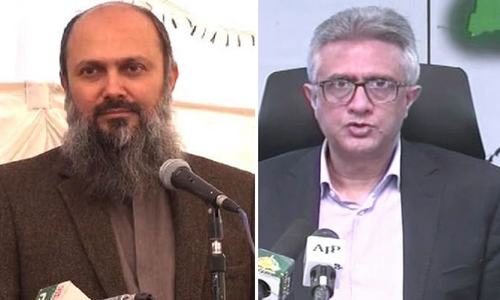QUETTA: Resisting vaccination against preventable diseases and pandemics is not a new phenomenon. The attitude is particularly entrenched in developing countries like Pakistan, where dogmatic beliefs, superstitions and fake news can create big hurdles in the way of battling such diseases and for people trying to raise awareness about the issue.
However, every cloud has a silver lining. Religious leader Mufti Qazi Yahya Khan, who has been making efforts to make a difference against all odds, is a ray of hope in Balochistan when it comes to raising awareness about vaccines, especially against polio.
He says that despite a lack of knowledge and experience, the confirmations of some of the great dignitaries attracted him towards the health sector and removed his doubts. Besides, the teachings of Prophet Muhammad (peace be upon him) regarding health also motivated him to raise public awareness and end resistance to vaccines.
Religious leader backs vaccination, says scholars have issued fatwas in its favour
Pakistan and Afghanistan are the only countries in the world where polio remains endemic. Pakistan kicked off this year’s polio vaccination programme from Saturday in which 22.4 million children under the age of five years will be vaccinated against the disease.
Mufti Khan says rumours and fake videos circulating on the media these days have led people to refuse vaccination. These videos spread spurious religious and medical content to mislead and create misunderstanding on a large scale.
“The fact is that the vaccines have been developed by experienced health experts to help prevent contagious and infectious diseases. Besides, many scholars and muftis have issued confirmations and fatwas in this regard,” Mufti Khan says.
The health centre of Darul Uloom Karachi, in particular, has given a detailed reference and explanation of vaccines and highlighted their positive aspects. They have clarified that these drops are permissible in Islam and useful for health and treatment, he says.
However, Mufti Khan’s job is not exactly a walk in the park. He has to face harassment and sometimes even ridicule. “While helping polio workers, religious people harassed me by trying to drag me into conflicts through rumours against me; I answered the questions patiently and seriously. People even mock me at times.”
This perseverance has helped him satisfy many refusing parents and naysayers. “Through the references of my great scholars in Darul Uloom Haqqania and Darul Uloom Karachi, by the grace of Allah many people have given up their stubbornness,” he says.
He has also received help from Dr Bashir Kakar and Dr Naeem Agha’s medical views in answering questions of the public.
“I urge religious scholars to educate the masses in a positive way about the treatment of health and well-being in the light of the Quran and Hadith,” Mufti Khan says. “They should inform people about the rational statements and references given in these two highest sources of knowledge and the precautions to be taken by the parents. Awareness about childcare should be raised through Friday sermons and other religious gatherings and a sense of responsibility should be instilled among the public.
“I have been informing people at different forums since 2012 regarding the welfare and protection of their health. I have urged them to consult medical experts and refrain from fake news and rumours,” he says.
Mufti Khan says the situation was quite different from 10 years ago. In Kharotabad, for instance, “polio workers are performing their duties in a calm and peaceful manner”, he says.
Published in Dawn, January 24th, 2022











































